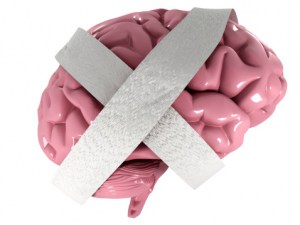 Catheter ablation (sometimes called Cardiac Catheter Ablation) is a common procedure used to treat some types of arrhythmias that don’t respond to medication. The therapy involves a series of small tubes (catheters) inserted through small incisions; the tubes are specially designed to focus laser light, radio frequency signals or cold temperatures in order to cause scarring referred to as an ablation line. In the same way that laser eye surgery uses scars to reshape the eye, catheter ablation uses scars to re-time the heart.
Catheter ablation (sometimes called Cardiac Catheter Ablation) is a common procedure used to treat some types of arrhythmias that don’t respond to medication. The therapy involves a series of small tubes (catheters) inserted through small incisions; the tubes are specially designed to focus laser light, radio frequency signals or cold temperatures in order to cause scarring referred to as an ablation line. In the same way that laser eye surgery uses scars to reshape the eye, catheter ablation uses scars to re-time the heart.
A significant side effect
This common procedure has been in use for years, but a recent study has found that it may have serious side effects. From Medical Xpress, “In a small study of patients undergoing catheter ablation for common abnormal heartbeats from the lower chamber of the heart (premature ventricular contractions (PVCs)), researchers found a significantly higher rate of seemingly asymptomatic brain injury due to embolism among the patients whose therapy occurred on the left ventricle of the heart, which supplies blood to the brain, compared to patients whose therapy was conducted on the right ventricle, which pumps blood to the lungs.”
The embolisms refer to clots or other obstructions that are created or dislodged during the procedure. Because the left ventricle is a direct supplier of blood to the brain, catheter ablation in that part of the heart is much more likely to cause brain injury than in other quadrants. To determine the rate of injury, the study tracked 18 patients over the course of nine months. Of the 12 patients who underwent left ventricular ablation therapy, seven developed a combined sixteen brain embolisms following the procedure.
The cure is worse than the disease
For medical professionals, the fact that patients who undergo catheter ablation frequently develop brain embolism isn’t news. Until now, however, medical professionals believed that the embolisms were unrelated to the procedure. This study is the first to provide a direct correlation, and paves the way for new research to determine the long-term consequences of the lesions and ways to avoid them. In the meantime, as catheter ablation becomes more popular, more and more people are at risk of brain injury every year.
Almost a quarter of a million people undergo catheter ablation each year. According to the study, the rate of brain injury resulting from the procedure ranges from 10 to 20%, meaning that somewhere between 25,000 and 50,000 patients are placed at a high risk of brain damage each year. If you or a loved one has undergone catheter ablation therapy and developed brain damage, you may be entitled to compensation for your medical bills, lost wages and continuing care. The experienced Nashville brain injury attorneys at the Rocky McElhaney Law Firm can evaluate your case and help get you the compensation you need. For a free consultation, call 615.246.5549, visit our offices in Nashville, Gallatin or Knoxville, or contact us today.
